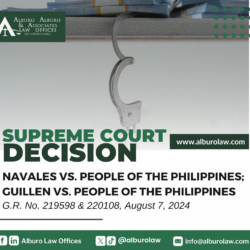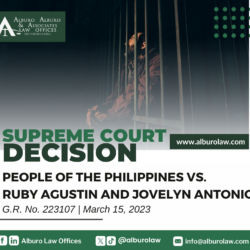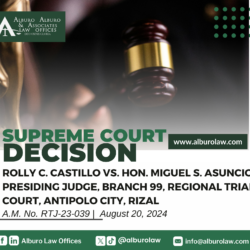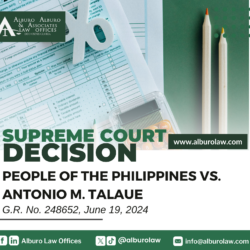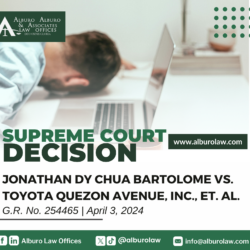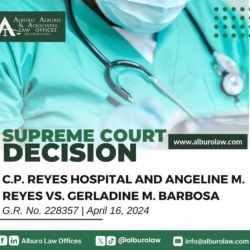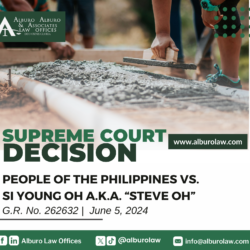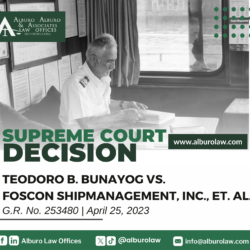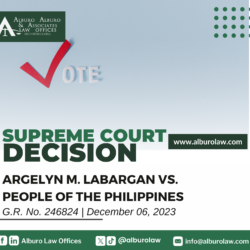The Supreme Court decides: A violation of Procurement Laws by public officers will not automatically result in a conviction under Republic Act No. 3019, also known as the Anti-Graft and Corrupt Practices Act.
Photo from Pexels | Tima Miroshnichenko The following post does not create a lawyer-client relationship between Alburo Alburo and Associates Law Offices (or any of its lawyers) and the reader. It is still best for you to engage the services of a lawyer or you may directly contact and consult Alburo Alburo and Associates Law Read more about The Supreme Court decides: A violation of Procurement Laws by public officers will not automatically result in a conviction under Republic Act No. 3019, also known as the Anti-Graft and Corrupt Practices Act.[…]


